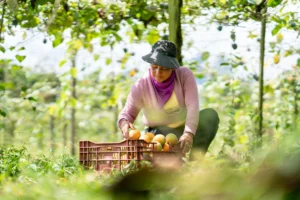By Charmaine Yap, Legislative Assistant, Singapore Parliament
The Good Samaritan Food Donation Bill, passed in the Singapore Parliament in August 2024, is a landmark piece of legislation in Singapore that provides liability protection for food donors.
Under this law, food donors —whether they are individuals, businesses, or charities—will be exempt from civil or criminal liability for any harm caused by the consumption of donated food, provided they meet four essential conditions:
1. The food must not be unsafe or unsuitable for consumption at the time of donation.
2. Donors must provide recipients with information on how to handle the food safely.
3. Donors must inform recipients of any time limits within which the food is safe to consume.
4. Reasonable steps must be taken to ensure food safety and hygiene prior to the donation.
By meeting these requirements, donors can avoid liability even in the unlikely event that a recipient falls ill after consuming the donated food.
In addition to the substantive legal protections afforded to food donors, the Bill is also symbolically important as the first piece of legislation focused on food donation in Singapore’s history. The passage of the Bill has helped to focus public attention on food donation to reduce food waste and address food insecurity.
Significantly, the Bill was passed as a Private Member’s Bill through a rigorous consultation and drafting process by the Good Samaritan Legislation Review Committee (GSLRC). Led by Member of Parliament Louis Ng and involving three other Singapore Members of Parliament, the GSLRC was comprised of stakeholders in the food donation landscape. The GSLRC included representatives from food banks, food charities, food community groups, industry associations, restaurants, supermarket owners, hoteliers, bakeries, and grassroots groups.
The GSLRC sought input through extensive public and closed-door consultations, reaching out to the Restaurant Association of Singapore, the Singapore Hotel Association, social enterprises, primary food producers, the food processing sector, food wholesalers and distributors, logistics providers, supermarkets, convenience stores, merchant associations, bakeries, NGOs, and community groups.
The four-year-long consultation process ensured that the final legislation struck an appropriate balance between encouraging food donation, and ensuring food safety and hygiene. Equally important, the extensive consultation helped to prepare stakeholders for the introduction of the Bill and gain public acceptance for the law, even before the legislation was formally introduced in Parliament.
The GSLRC also consulted government partners from the Singapore Ministry of Sustainability and the Environment, the Singapore Food Agency, and the Ministry for Social and Family Development to ensure that the Bill would be enforceable and feasible to implement.
Ultimately, 17 Members of Parliament delivered speeches in support of the Bill and the Bill was passed with unanimous support from all Members of Parliament.
The Senior Parliamentary Secretary Eric Chua from the Ministry for Social and Family Development welcomed the Bill. “With the GSFD Bill, we can look forward to an increase in the quantity and variety of donated food, as more businesses and individuals are encouraged to donate. My hope is that this will lead to greater choice and dignity for beneficiaries of food support, who will be better placed to get food support that best meets their needs and preferences,” he said.
Senior Parliamentary Secretary Baey Yam Keng from the Ministry for Sustainability and the Environment similarly shared, “the Good Samaritan Food Donation Bill will help encourage donation of surplus food and contribute to reducing food waste. Importantly, this will be conducted in a manner that does not compromise food safety and consumer health. It also provides assurance to food donation recipients that reasonable measures have been taken to ensure food safety.”
The Bill is now pending assent from the President.
Much work goes into feeding people in Singapore. More than 90% of Singapore’s food supply has to be imported. The math is simple. 750,000 tonnes of annual food waste in Singapore divided by 1.6 million tonnes of commonly consumed food imported annually means that nearly 47% of Singapore’s most commonly consumed food imports go into the trash, not stomachs.
The Good Samaritan Food Donation Bill represents a crucial step forward in tackling food waste and enhancing food security in Singapore. By providing legal protection for food donors and encouraging safe donations, the Bill is poised to increase food redistribution efforts across the country. As more businesses and individuals participate in food donation programs, this legislation will play a key role in fostering a more sustainable and socially responsible food ecosystem in Singapore.


Food Law & Policy, Commentary
Policy to Reduce Methane Emissions and Feed More People
April 3, 2025